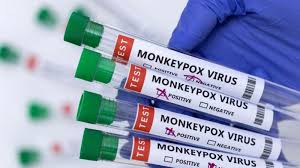Isolate those infected, practice good hygiene
Amid a rise in the cases of monkeypox cases in the country, the central government has issued guidelines on the management of the disease as a proactive step to ensure preparedness. As of May 31, there are no reported cases of monkeypox in India.
The guidelines include the epidemiology of the disease, contact and case definitions, clinical features and its complication, diagnosis, case management, risk communication, and guidance on Infection Prevention and Control (IPC).
The guidelines stress surveillance and rapid identification of new cases as the key public health measures for outbreak containment. As per the guidelines, contacts should be monitored at least daily for the onset of signs/symptoms for a period of 21 days (as per case definition) from the last contact with a patient or their contaminated materials during the infectious period.
The guidelines further highlight the importance of raising awareness and educating people about preventive measures like avoiding contact with any material of the sick person, isolation of the infected patient from others, practicing good hand hygiene, and using appropriate personal protective equipment (PPE) when caring for patients.
As per the information, the cases of Monkeypox have been reported as endemic in several central and western African countries such as Cameroon, Central African Republic, Cote d’Ivoire, the Democratic Republic of the Congo, and Gabon, Liberia, Nigeria, Republic of the Congo, and Sierra Leone.
However, cases have been reported in certain non-endemic countries like the USA, United Kingdom, Belgium, France, Germany, Italy, Netherlands, Portugal, Spain, Sweden, Australia, Canada, Austria, Israel, Switzerland, etc.
For treatment, the health ministry has listed down principles of management as given by ICMR-NIV Pune.
As per the guidelines, a case is confirmed for the monkeypox virus by detection of unique sequences of viral DNA either by polymerase chain reaction (PCR) and/or sequencing.





The Brief. Sign up to receive the top stories you need to know right now.